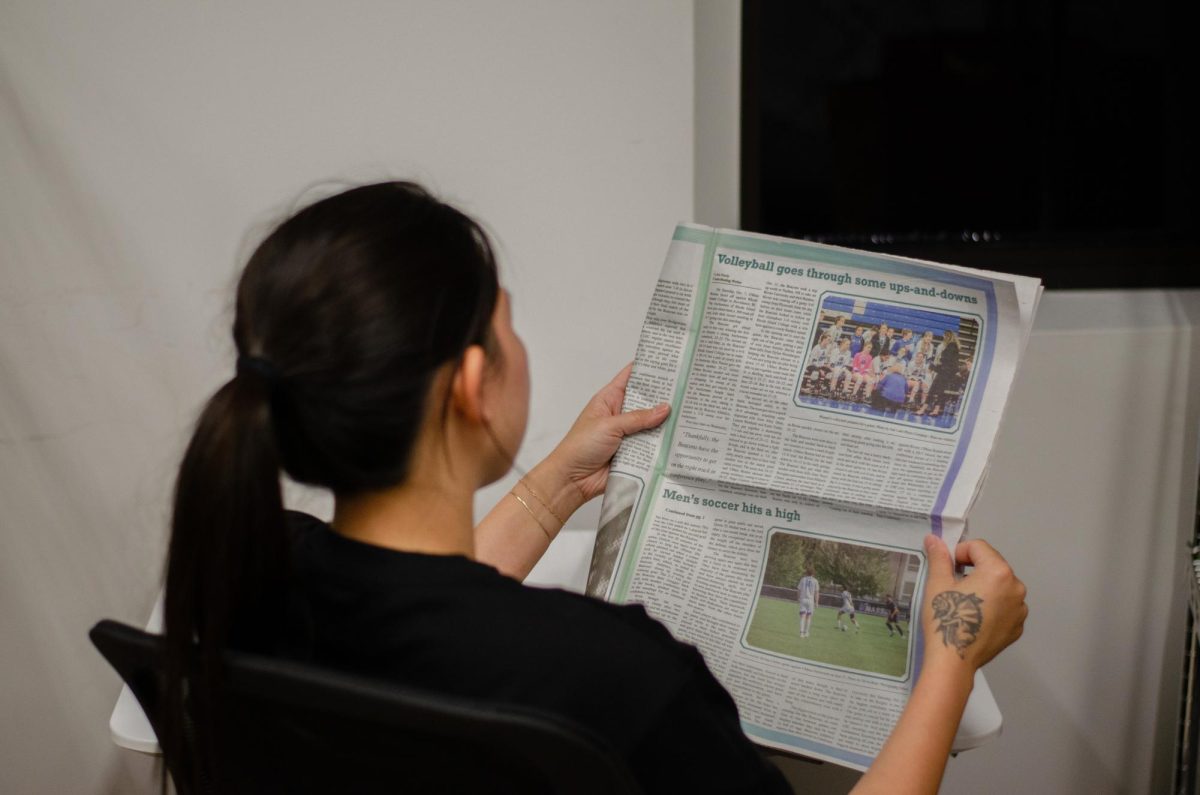Over the past few weeks, the world has been watching the conflict in the Middle East. Here in the United States, we follow the harrowing updates from behind our phones, on television or in the newspaper. In times of crisis, people rely on major news outlets to provide unbiased, evidence-backed coverage. We trust that the full story will be told, the bad and the good alike. Recently, however, it has become increasingly apparent that politically “neutral” or even liberal news outlets are truly not neutral at all.
Not all news outlets explicitly take a pro-Israel approach to reporting. Some ensure that their writers remain as impartial as possible, but by doing so, they ignore essential context. Regardless of the method, the plight of innocent Palestinians tends to be in the back pages or at the end of long articles, detached and devoid of humanity. Over the past month, much of the reporting on the military tactics of the Israeli Defense Forces has been stripped of its brutality. Suddenly, headlines are referring to bombings as “blasts” or simply “strikes.” These words are incredibly impersonal, working to neutralize violent acts with horrific consequences.
According to the Gaza Health Ministry, the Palestinian death toll has passed 8,000, with the majority being women and children. Even the Associated Press, a well-known “neutral” news source, has insinuated that these numbers are inaccurate. In an article published Oct. 26 discussing the bombing of al-Ahli Hospital, AP claimed that “there have also been conflicting accounts of the explosion’s death toll… the confusion has called into question the ministry’s credibility in the Hamas-ruled territory.” (1) Words like “Hamas-ruled” discredit and challenge the numbers of people reported dead by the Gaza Health Ministry. However, there is no alternate way of verifying these numbers, since Israel has closed Gaza’s borders and only allows for small aid convoys to enter the strip.
Analyzing these articles reveals the gross lack of empathy in the news coverage of humanitarian crises. During the peak of the Black Lives Matter movement in 2020, those who protested police brutality were labeled as “violent” and “disruptive.” It did not matter that, according to the Armed Conflict Location & Event Data Project, nearly 95 percent of demonstrations involved peaceful protesters. (2) In the rare cases of violence or looting, the story was blasted in nearly every major news outlet as a representation of the entire BLM movement. In contrast, the police violence that sparked the movement faded out into the background. News outlets are falling into the same habits when reporting on protests that call for a ceasefire or the liberation of Palestine.
Media coverage is no longer about knowledge, but about clicks and engagement. A consequence of living in a world where physical newspapers have become unpopular is the need for increased engagement online. Quick, short titles that capture a potential reader’s attention have always been standard for news outlets, but now they have been taken to another level. Headlines with inflammatory words are designed to capture the attention of the reader or to reaffirm one’s beliefs, not to truly report on the facts.
We need to trust the stories of those directly affected by the crisis. The families of victims, the doctors in the Gaza strip and the countless displaced civilians are telling their stories. We have the duty to amplify these first-hand accounts, not the carefully tailored and biased Western media. Starting to understand the reality of Palestine is more than just skimming an article; it is doing the work to question the choice of words and content of the news we are consuming. It is essential to have media literacy right now, and without it, we cannot question these harmful narratives.
SOURCES:





















































